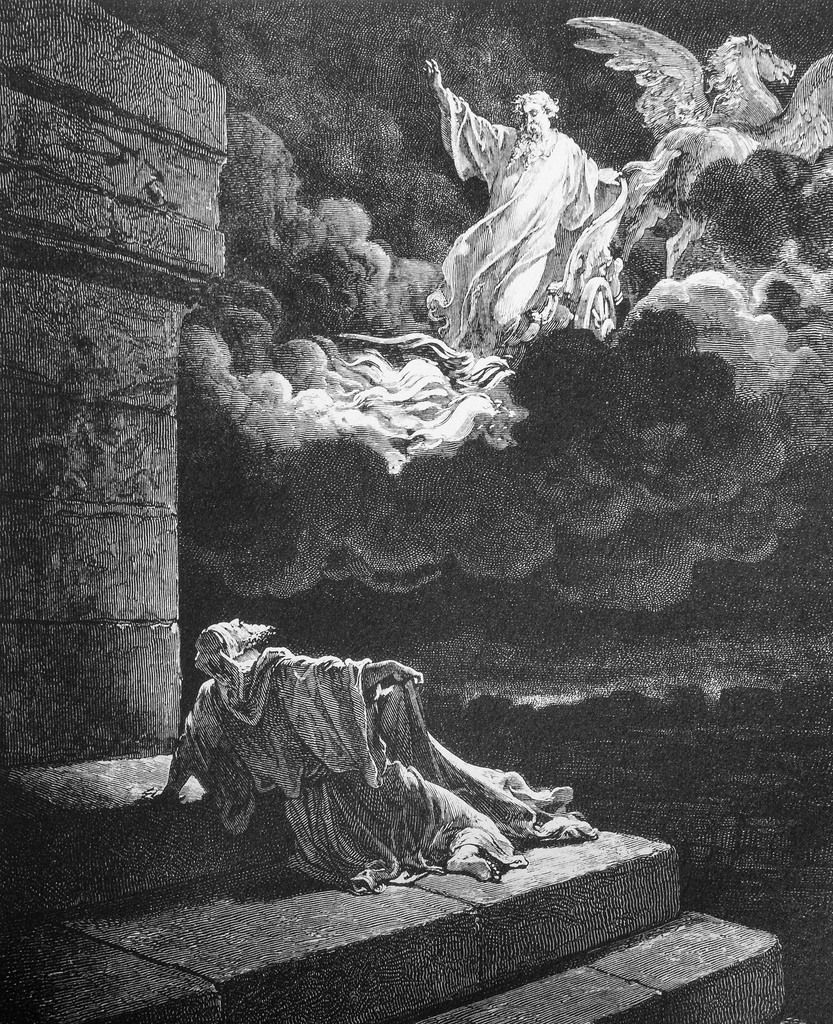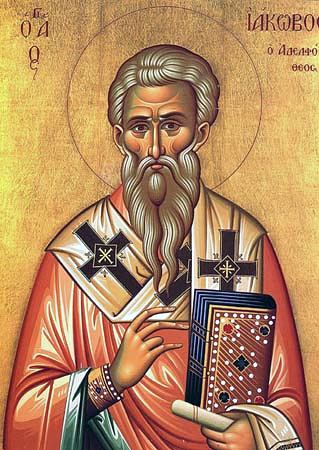
We all know the old joke about why the chicken crossed the road; it simply wanted to get to the other side. One could ask the same question about why Jesus walked on the Sea of Galilee (Mt 14.22-33, Mk 6.45-52, Jn 6.16-21). Was it only because He needed to get to the other side? But seriously, why walk on water? Are we to actually believe that Jesus suddenly felt the urge to walk on water and therefore God miraculously enabled Him to do so? We all remember those vacation Bible school felt board presentations displaying Jesus in a ghostly white robe walking on that stormy sea. But have you ever wondered what the real point of the “story” is. If you think that it was only to teach Peter that he needed to keep his eyes on the Lord, then you are missing the main point because 2 of the 3 Gospel make no reference to Peter’s failure and rescue. Consequently, the importance of keeping our focus on Jesus is only a secondary lesson; it is not the main one. So if trusting the Lord in the midst of life’s storms isn’t the main point, then what is? Was it just another miracle demonstrating that God was on Jesus’ side? Could not Jesus have miraculously sprinted super-humanly fast like Elijah and arrived at Gennesaret a head of the disciples? Wouldn’t that have also been very miraculous? We know that God has performed several miracles involving water. There was Moses turning the Nile to blood; and Joshua’s leading Israel across the Jordan on dry ground; and don’t forget Elisha’s floating axe head; and of course the big one, the crossing of the Red Sea. Was walking on water just another aquatic miracle that God performed on Jesus’ behalf? The short answer of course is no—there was a more important point that the Lord was making.
Before answering this question, it’s necessary to address first an attitude that some have about Jesus’ life and ministry. It seems that some have the idea that Jesus was simply bumbling through life with God as His good luck charm; specifically, that God wildly blessed everything that Jesus did. Regrettably, some try to acquire this Jesus “magic” for themselves so that they can “live their best lives now.” However, Jesus explained how He went about deciding on what to do in this manner: “Truly, truly, I say to you, the Son can do nothing of Himself, unless it is something He sees the Father doing; for whatever the Father does, these things the Son also does in the same way. For the Father loves the Son and shows Him all things that He Himself is doing; and the Father will show Him greater works than these, so that you will be amazed” (Jn 5.19-20, NASB). In short, everything that Jesus did was directed by the Father. Jesus didn’t live independently of the Father and the Father wasn’t around just to cover Jesus backside. Consequently, as the incarnate God-man He is our consummate model of what it means to live in complete obedience to the Father’s will—whatever that cost may be.
That being said, Jesus also explained that the central theme of the Old Testament was to reveal precisely who He was. John 5.39 quotes Jesus asserting that “You examine the Scriptures because you think that in them you have eternal life; and it is those very Scriptures that testify about Me . . . if you believed Moses, then you would believe Me; for he wrote about Me” (Jn 5.39, 46a). Additionally, He told the disciples that “These are My words which I spoke to you while I was still with you, that all the things that are written about Me in the Law of Moses and the Prophets and the Psalms must be fulfilled” (Lk 24.44). But most importantly He explained that “Do not presume that I came to abolish the Law or the Prophets; I did not come to abolish, but to fulfill. For truly I say to you, until heaven and earth pass away, not the smallest letter or stroke of a letter shall pass from the Law, until all is accomplished!” (Mt 5.17-18). Jesus embraced His identity as revealed in the Old Testament. Moreover, He either “fulfilled” during His first coming or will fulfill at His second coming whatever it communicates about the Lord God. As far as Jesus was concerned the entire Old Testament foretold of His coming, and it explains everything about Him, as well as what He promises to accomplish. Consequently, Christians that ignore the Old Testament because it contains uncomfortable things or because it’s hard to understand necessarily deprive themselves of fully comprehending Jesus. In other words, by ignoring the Old Testament we guarantee our own spiritual ignorance about the Lord because it is foundational to understanding Him.
That being established, we now turn back to the original question, which is “why” did Jesus walk on water? What was the essential point that He was making? As previously referenced, the Old Testament contains 2 key events in which God performed miracles involving water. The first was His rescuing Israel from the Egyptian army, in which the entire nation safely “passed through” the Red Sea (Ex 14.13ff, Ps 78.13, Neh 9.11, 1 Cor 10.1). The second was crossing through the Jordon River on dry ground (Josh 3.1-17, Ps 66.6). However, during these miracles the Israelites could only safely pass through those waters, they were not enabled to walk on the waters. Scripture reveals that only divinity possesses the capacity to walk on water. We are told this in Job 9.8, which states that God “alone stretches out the heavens and treads on the waves of the sea” (NIV). Of course, for a brief moment Peter walked on water, but only by the divine enabling of the Lord Jesus Christ, not from Peter’s own power. If left to his self, then he would have drowned. The Scriptures teach that only He who is divine can walk on water, those that are only human lack this ability.
But what did the Gospel authors think about that miracle? Unfortunately they provided little commentary about the event. John simply stated that Jesus got into the boat. Mark explained that the disciples were “terrified” and “astonished,” and by that point their hearts were “hardened” with respect to comprehending Jesus’ full identity (vs 52). Matthew wrote that the disciples “worshiped” the Lord and actually declared that He was the “Son of God” (vs. 33). The rest of his Gospel, however, reveals that their momentary confession lacked an adequate appreciation of what they asserted. It is not until the end of his Gospel that Matthew revealed that they fully comprehended who Jesus is.
So once more, why did Jesus walk on the stormy Sea of Galilee? For the same reason that He had previously stilled it (Mt 8.23-27, Mk 4.35-39, Lk 8.22-25), because He was revealing that He is God incarnate, for only God can control the Earth’s elements so as to calm a stormy sea by just the power of His spoken word (Ps 65.7, 89.9, 107.29). And similarly, only God can walk on water (Jb 9.8). Therefore, if we think that it was just serendipitous that God the Father enabled Jesus to walk on water in order to teach Peter a valuable lesson, then we are missing Jesus’ purpose for that miracle. Jesus was making a Christological statement concerning Himself.[1] This self-revelation is why He walked on those waves. Consequently, if we ignore the Old Testament and read only the New Testament, then we will miss the riches of discovering exactly who Jesus is. However, if we study the entire Bible with the purpose of discovering what it reveals about the Lord, then we have the opportunity to comprehend Jesus’ full identity. That means learning that He is the incarnate God; He is the one who was eternally before the beginning; He is the promised messianic Davidic King, and He is Lord of Heaven and Earth. And most importantly, He is Lord of all and the only savior of the world, for He is the One that even water serves and submits to His will.
[1] Simply defined, “Christology” is the study of the person, nature, and work of Jesus Christ.









